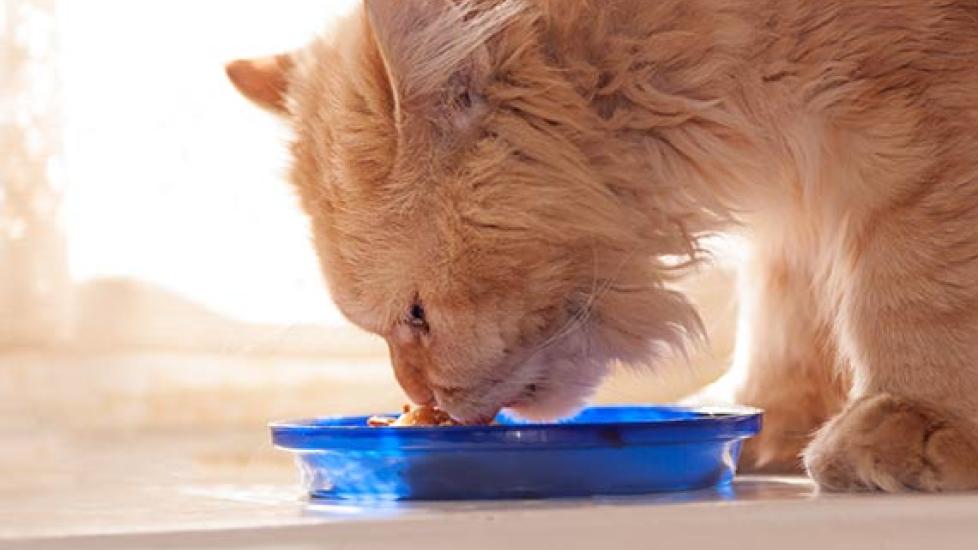Most Cat Illnesses Can Be Treated with Small Change in Diet
Pets Best insurance Services recently published a list of the ten most common diseases in their insured cats for the last ten years:
- Renal failure (25%)
- Hyperthyroidism (20%)
- Diabetes mellitus (11%)
- Allergies (8%)
- Inflammatory bowel disease (7%)
- Lymphoma (7%)
- Feline lower urinary tract disease (6%)
- Cancer (6%)
- Urinary tract infection (5%)
- Otitis (5%)
What I find most fascinating about this list is that the top seven conditions have well-accepted nutritional remedies, and with a little creative thinking all ten can be treated with diet. Here’s what I mean.
Hyperthyroidism
Cats with hyperthyroidism make too much thyroid hormone. One of the limiting factors in the production of thyroid hormone is the presence of sufficient amounts of iodine in the body, and iodine is supplied by the diet. A major pet food manufacturer has started making a low iodine food that is proving to help control hyperthyroidism in many cats.
Diabetes mellitus
Type 2 diabetes, the most prevalent form in cats, can be quite responsive to diet. Most diabetic cats will either need less insulin or will be able to go off insulin entirely (at least for a while) if they eat low carbohydrate, high protein foods.
Allergies
If cats are allergic to a particular type of food (beef and dairy products are common culprits), avoiding that ingredient will eliminate their symptoms. Even when cats are allergic to environmental triggers (pollen, mold spores, mites, etc.), dietary therapy is still often helpful. Nutritional supplements containing anti-inflammatory omega-3 fatty acids, which are found in many cold water fish oils, can help ease the symptoms of allergies in cats. Recurrent cases of otitis that are not caused by ear mites are often linked to allergies in cats, so the same treatments are often helpful
Inflammatory bowel disease (IBD)
Hypoallergenic diets such as those made from novel protein sources like venison and green pea, or those that have been hydrolyzed (broken down to the point that the immune system ignores them), are central to the treatment of inflammatory bowel disease. Probiotic nutritional supplements that contain beneficial intestinal microorganisms are also a common treatment recommendation for inflammatory bowel disease.
Lymphoma and other cancers
Cancerous cells alter the body’s metabolism. They metabolize glucose and make lactate that the body then tries to convert back into glucose. This takes energy away from the cat and gives it to the cancer. Cancers also convert amino acids, the building blocks of protein, into energy causing muscle wasting, poor immune function, and slow healing. On the other hand, cancerous cells do not appear to be very efficient at using fat as an energy source.
Based on these metabolic changes, many veterinarians recommend feeding feline cancer patients diets that are relatively low in carbohydrates (particularly simple carbohydrates) and high in protein and fat. Omega-3 fatty acids are often added to these diets because they are a good source of fat and calories and may have “anti-cancer” effects.
Feline lower urinary tract disease
Dilute urine does not irritate the bladder wall like concentrated urine can. Feeding canned food is an easy way to increase a cat’s water consumption. Several pet food manufacturers make canned cat foods that promote overall bladder health and an optimum urinary pH, which can be particularly helpful if urinary crystals have been a problem. Nutritional supplements containing cranberry extracts may help prevent recurrent urinary tract infections in cats.
